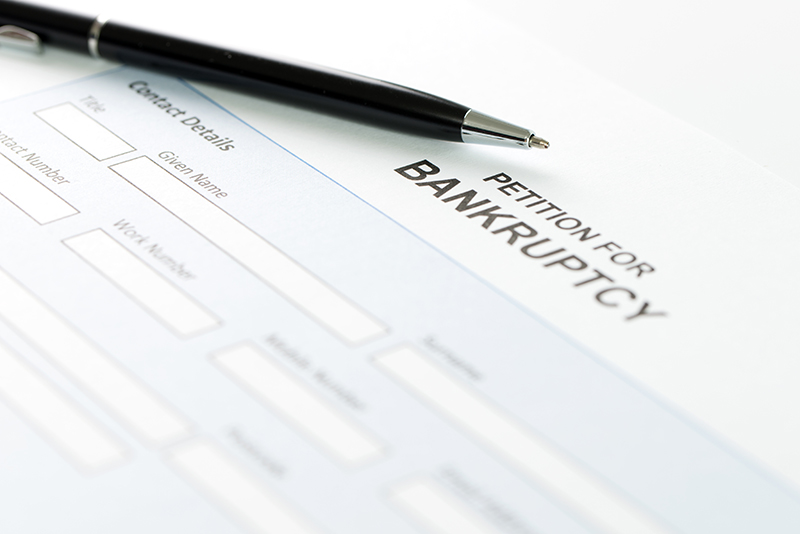How Much Will Filing for Bankruptcy Cost in Michigan?
The cost of filing for bankruptcy in Michigan can vary depending on the type of bankruptcy you are filing for and the complexity of your case.
In Michigan, the cost to file for Chapter 7 bankruptcy is $338, while the cost to file for Chapter 13 bankruptcy is $313. These fees are set by the federal government and are the same across all states. There may be additional costs associated with filing for bankruptcy, such as attorney fees, credit counseling fees, and court costs.
Individuals filing for bankruptcy in Michigan are also required to complete a credit counseling course, which can cost around $50 to $100. This course is designed to provide individuals with the necessary financial education to help them make informed decisions about their finances and debt management.

How Long Will Filing Bankruptcy in Michigan Take?
The first step in the bankruptcy process is to file a petition with the bankruptcy court. Once your petition is filed, an automatic stay goes into effect, which stops most collection actions against you, including foreclosure, repossession, and wage garnishment. This can provide immediate relief from financial stress.
After filing, you will be required to attend a meeting of creditors, where you will answer questions about your financial situation. This usually takes place within a few weeks of filing. Following the meeting of creditors, you will need to complete a financial management course, and a discharge of your debts will typically be granted within a few months.
Chapter 7 bankruptcy cases, which involve the liquidation of assets to pay off debts, typically take about 3-4 months from the time of filing to the discharge of debts. Chapter 13 bankruptcy cases, which involve a repayment plan for some or all of your debts, usually take 3-5 years to complete, depending on the terms of the repayment plan.
Every bankruptcy case is unique, and the timeline for your case may be longer or shorter depending on factors such as the complexity of your financial situation, the involvement of creditors or the trustee, and the efficiency of the bankruptcy court.
What Information Will I Need to Provide to File Bankruptcy in Michigan?
The first piece of information you will need is documentation regarding your financial situation. This includes a list of all of your assets, such as real estate, vehicles, and personal property, as well as any outstanding debts and liabilities. You will also need to provide detailed information about your income, including pay stubs, tax returns, and any other sources of revenue. [1]
You will need to compile a list of all of your creditors, along with the amount of money that you owe to each one. This will involve gathering copies of any bills, statements, or other correspondence from your creditors that detail your outstanding debts.
Another piece of information you will need to provide is a thorough breakdown of your monthly living expenses. This includes costs for housing, utilities, transportation, food, and any other necessary expenses. Being able to demonstrate your monthly budget will help the court determine your ability to pay off your debts.
You will also need to provide personal information, such as your social security number, identification, and any relevant legal paperwork, such as previous bankruptcy filings or court judgments.

Can Creditors Still Contact Me After I File Bankruptcy?
The good news is that once a person has filed for bankruptcy, an automatic stay is put into place. This means that creditors are legally prohibited from attempting to collect any outstanding debts from the individual who has filed for bankruptcy.
The automatic stay is a vital component of bankruptcy protection, as it provides relief for the debtor and allows them to work through the bankruptcy process without the added stress of constant communication and collection attempts from creditors. This protection applies to all forms of collection efforts, including phone calls, letters, lawsuits, and wage garnishments.
There are some exceptions to the automatic stay. Certain types of debts, such as child support, alimony, and some tax obligations, may not be covered by the automatic stay, and creditors may still be able to pursue these debts during the bankruptcy process.
If a creditor believes that their debt should be exempt from the automatic stay, they may file a motion with the court to request permission to continue their collection efforts. In some cases, the court may grant this motion, allowing the creditor to proceed with their collection attempts.
After a bankruptcy case is finalized, some creditors may continue to contact the individual for debts that were not discharged in the bankruptcy. Debts such as student loans, taxes, and certain types of civil judgments may not be eligible for discharge and can still be pursued by creditors after the bankruptcy process is complete.
Will I Need to Go to Court After Filing Bankruptcy?
In a Chapter 7 bankruptcy, there is typically a court appearance called a meeting of creditors, also known as a 341 meeting. During this meeting, the bankruptcy trustee and any creditors who choose to attend will ask the debtor questions about their financial situation and the bankruptcy filing. This meeting is typically relatively short and informal, and in most cases, it is the only time the debtor will need to appear in court. [1]
In a Chapter 13 bankruptcy, there is also a meeting of creditors, but there may also be a confirmation hearing where the bankruptcy court will review and approve the debtor’s proposed repayment plan. The debtor will need to attend this hearing, and in some cases, the bankruptcy judge may ask the debtor questions about their proposed plan.
In some cases, creditors may request a hearing to object to the bankruptcy filing, but these situations are relatively rare. If a hearing is scheduled, the debtor will need to attend and present their case to the bankruptcy court.

Contact Frego Law’s bankruptcy lawyers today to schedule a free consultation.
Source:
[1] Team, I. (2023, July 16). What Happens When You File for Bankruptcy? Investopedia. https://www.investopedia.com/articles/pf/07/bankruptcy.asp




